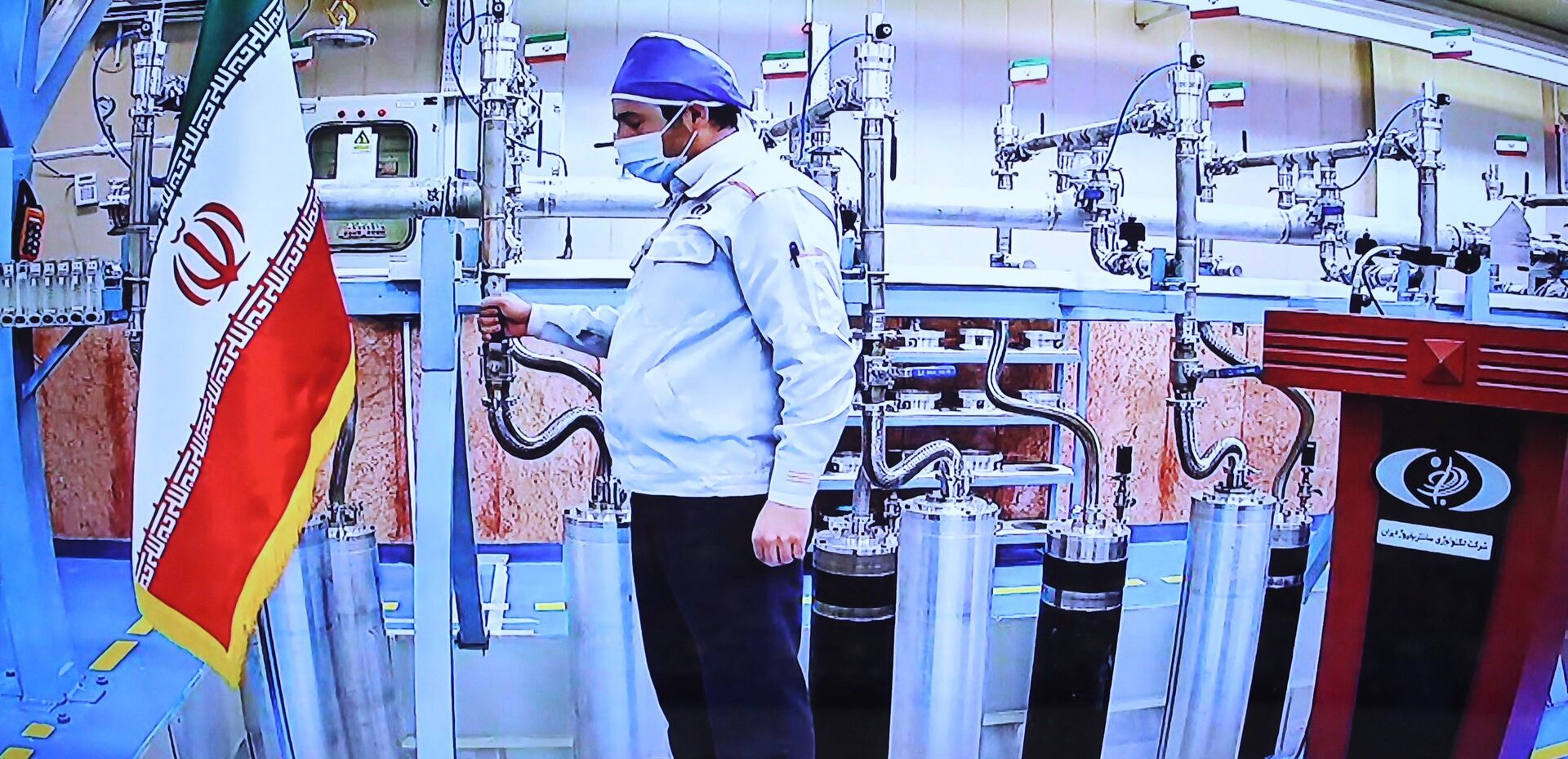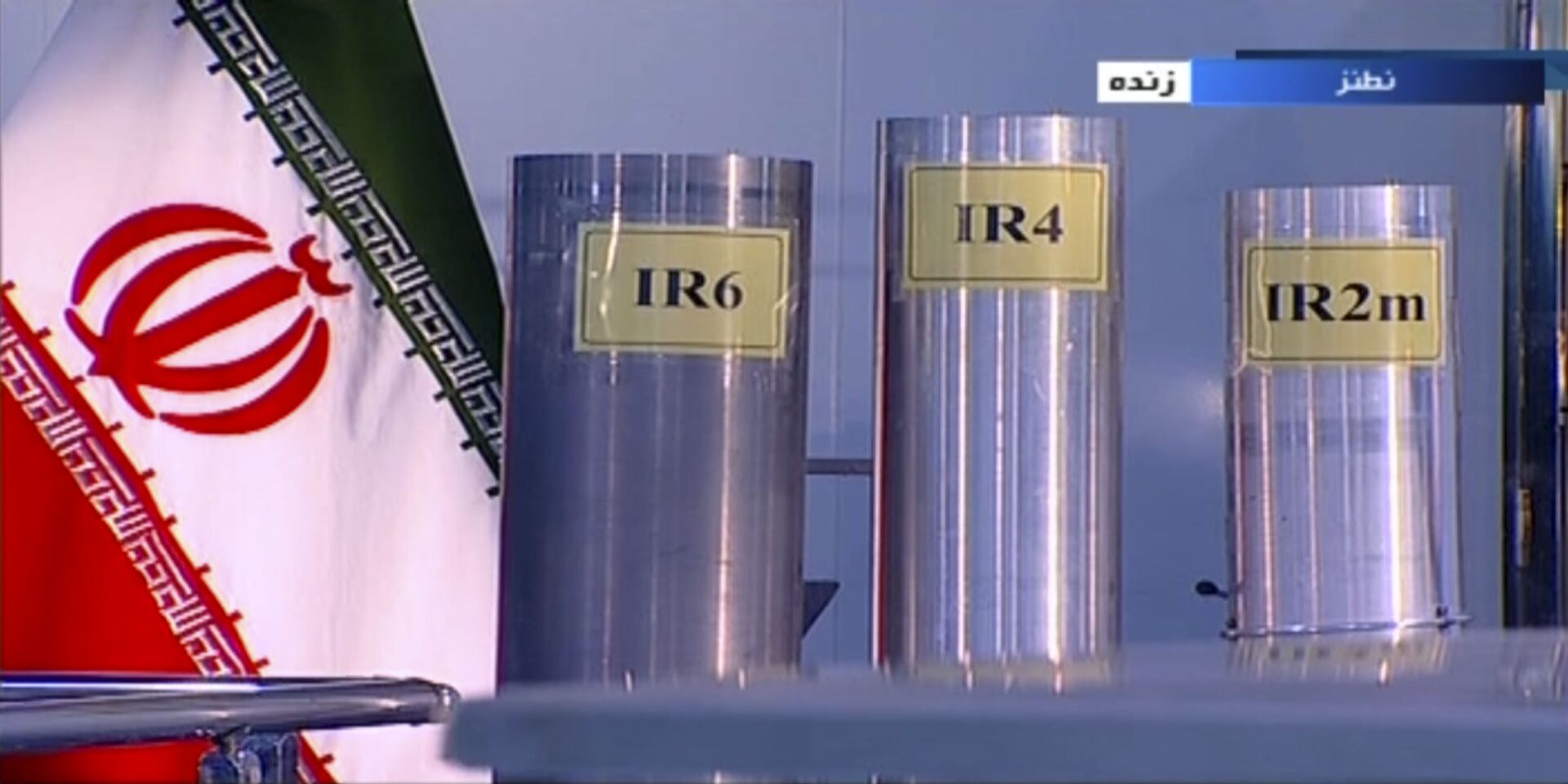https://sputnikglobe.com/20211129/as-iran-nuclear-talks-resume-will-israel-ever-exercise-military-option-1091102766.html
As Iran Nuclear Talks Resume, Will Israel Ever Exercise Military Option?
As Iran Nuclear Talks Resume, Will Israel Ever Exercise Military Option?
Sputnik International
The US and its European allies are expected to put pressure on the Islamic Republic in the new round of talks that kick off in Vienna on Monday. They will try... 29.11.2021, Sputnik International
2021-11-29T08:18+0000
2021-11-29T08:18+0000
2021-11-29T08:18+0000
middle east
israel
iran
iranian nuclear program
https://cdn1.img.sputnikglobe.com/img/07e5/05/0b/1082855184_0:0:3073:1728_1920x0_80_0_0_c1415315d2be41cac35308619a14db9e.jpg
After six months of zero progress, the United States and its allies will convene in Vienna later in the day for a fresh round talks with Iran over its nuclear programme.In 2018, Washington left the Joint Comprehensive Plan of Action (JCPOA), a 2015 deal under which Tehran accepted restrictions on its nuclear programme in exchange for the lifting of western sanctions.Under the Biden administration, the US has resumed discussions with Iran but so far they have not borne any fruit. Breakthrough Expected?Meanwhile, Israeli reports, citing British intelligence sources, claim that the Islamic Republic has made significant progress "in its quest for an atomic bomb", suggesting Tehran is only one month away from achieving that goal.Dr Raz Zimmt, a research fellow at Israel's Institute for National Security Studies and one of the nation's leading experts on Iran, says the Vienna negotiations are "unlikely" to lead to any breakthrough.The new president of the Islamic Republic, Ebrahim Raisi, has already stated that he has no plans to retreat in nuclear talks with the major powers. And the US and its allies are now frightened that the negotiations might be used by Iran to buy time, something that world leaders cannot accept.All Options on the TableIsrael is also following the developments with great concern. In the past, Israeli officials stressed that a nuclear bomb in the hands of Iran would pose an existential threat to the Jewish state, allegations that the Islamic Republic denied. And now, the fear is, says Zimmt, that the sanctions imposed on Tehran will be lifted, with the superpowers gaining nothing major in return.To prevent that from happening Israel and the US have already started to ramp up their rhetoric.Last week, in an interview with TIME magazine, US Central Command (CENTCOM) Commander General Kenneth McKenzie stated that Washington had prepared "a variety of plans" to prevent Iran from acquiring a nuclear bomb, including a military option.Similar comments have also been made by a number of Israeli officials, including Prime Minister Naftali Bennett and Defence Minister Benny Gantz, who vowed to act against Iran if need be.But Zimmt says the recent Israeli and American threats were only designed to show "concern from the advancement the Iranians [have] made", and to convince the Iranians to curb their quest for a nuclear weapon.Israeli officials are planning to apply that pressure in Europe. Foreign Minister Yair Lapid is currently visiting London and then will head to Paris, where he will try to convince leaders to go hard on Iran and its nuclear programme.Zimmt, however, says he is doubtful Israel has a say vis-a-vis the Europeans.
israel
iran
Sputnik International
feedback@sputniknews.com
+74956456601
MIA „Rossiya Segodnya“
2021
News
en_EN
Sputnik International
feedback@sputniknews.com
+74956456601
MIA „Rossiya Segodnya“
Sputnik International
feedback@sputniknews.com
+74956456601
MIA „Rossiya Segodnya“
middle east, israel, iran, iranian nuclear program
middle east, israel, iran, iranian nuclear program
As Iran Nuclear Talks Resume, Will Israel Ever Exercise Military Option?
The US and its European allies are expected to put pressure on the Islamic Republic in the new round of talks that kick off in Vienna on Monday. They will try to solve the stalemate through economic and diplomatic measures but if those fail, will they give in to Israel who is pushing for a harder line on Tehran?
After six months of zero progress, the United States and its allies will convene in Vienna later in the day for a fresh round talks with Iran over its nuclear programme.
In 2018, Washington left the Joint Comprehensive Plan of Action (JCPOA), a 2015 deal under which Tehran accepted restrictions on its nuclear programme in exchange for the lifting of western sanctions.
Under the Biden administration, the US has resumed discussions with Iran but so far they have not borne any fruit.
Meanwhile, Israeli reports, citing British intelligence sources, claim that the Islamic Republic has made significant progress "in its quest for an atomic bomb", suggesting
Tehran is only one month away from achieving that goal.
Dr Raz Zimmt, a research fellow at Israel's Institute for National Security Studies and one of the nation's leading experts on Iran, says the Vienna negotiations are "unlikely" to lead to any breakthrough.
"The negotiations are going to be used [by the Iranians] to show their hardline position. It will also be an opportunity for them to indicate that the path they will be taking will be different from that that was adopted by the previous Iranian administration".
The new president of the Islamic Republic, Ebrahim Raisi, has already stated that he has
no plans to retreat in nuclear talks with the major powers. And the US and its allies are now frightened that the negotiations might be used by Iran to buy time, something that world leaders cannot accept.
Israel is also following the developments with great concern. In the past, Israeli officials stressed that a nuclear bomb in the hands of Iran would pose an existential threat to the Jewish state, allegations that the Islamic Republic denied. And now, the fear is, says Zimmt, that the sanctions imposed on Tehran will be lifted, with the superpowers gaining nothing major in return.
To prevent that from happening Israel and the US have already started to ramp up their rhetoric.
Last week, in an interview with
TIME magazine, US Central Command (CENTCOM) Commander General Kenneth McKenzie stated that Washington had prepared "a variety of plans" to
prevent Iran from acquiring a nuclear bomb, including a military option.
Similar comments have also been made by a number of Israeli officials, including Prime Minister Naftali Bennett and Defence Minister Benny Gantz, who
vowed to act against Iran if need be.
But Zimmt says the recent Israeli and American threats were only designed to show "concern from the advancement the Iranians [have] made", and to convince the Iranians to curb their quest for a nuclear weapon.
"If Iran continues to work towards reaching a nuclear threshold, I cannot rule out that Israel will not be using a military option. But it won't happen anytime soon, and it won't occur as long as there are other alternatives such as economic and diplomatic pressure on the table".
Israeli officials are planning to apply that pressure in Europe. Foreign Minister Yair Lapid is currently visiting London and then will head to Paris, where he will try to convince leaders to go hard on Iran and its nuclear programme.
Zimmt, however, says he is doubtful Israel has a say vis-a-vis the Europeans.
"The Europeans will try to push for going back to the JCPOA agreement. If that doesn't work, they might become more inclined to listen to Israel and cooperate with it. But that will only happen if they fail to convince the Iranians through diplomatic means".



